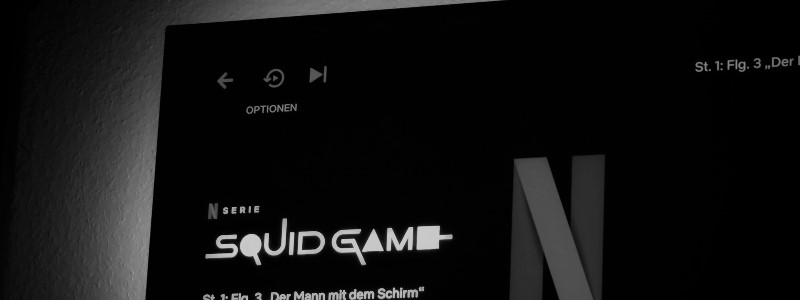If you haven’t heard of the phenomenon that is ‘Squid Game’ then you either have not got Netflix, or are asleep. However, for those of you who haven’t, here is an extremely brief synopsis:
Squid Game is set in modern day South Korea and is a dystopian nightmare of a game whereby the wealthy and entitled prey on the indebted and vulnerable in society through enlisting them into a ‘game’ based on Korean children’s games, however, where the contestants are killed if they fail or lose each round. Beyond the set design and superficial concept, the characters are ubiquitous and the finale relatively predictable. What really stands out on this series is firstly the astonishing level of macabre violence and secondly, how popular it has been as a global phenomenon.
Narcissism by another name
We are all fascinated by car crashes hence why it is not uncommon to witness secondary crashes alongside the scene of the first, as distracted drivers fetishistically scan the crash rather than watching the road (commonly known as ‘rubber-necking’). Squid Game does a good job of drawing viewers in with its almost limitless supply of violent deaths.
However, Squid Game is more than a mere car crash, it is a carefully choreographed and scripted example of extreme narcissism.
Dystopia or a social commentary?
Much has been made of how many of the elements of Squid Game reflect the social and income inequalities present in Korean society and there may be some truth to this.
Indeed, social and income inequality, when rampant, is a product of narcissism, where fellow humans are considered inferior or less than others.
However, to suggest that a series in which literally hundreds of people are murdered and psychopathology and sadism are the norm, is some sort of social commentary, really is an enormous stretch.
So is it a dystopia? Orwell’s 1984 was a critique on a dystopian future as was Huxley’s Brave New World. Squid Game is pure and simply gratuitous horror and violence for the sake of it. Nothing more nothing less.
What is narcissism?
Narcissism gets a bad rap, and whilst pathological narcissism is arguably responsible for many of the ails of the world, narcissism is on a spectrum.
Healthy narcissism lies in the middle of a spectrum between two extremes: one where a person cannot hold themselves in mind, and the second, where a person cannot hold anyone else in mind.
Healthy narcissism is one of the goals of successful therapy – to help clients hold themselves in mind whilst not losing sight of the individualises and thus the needs of others. The therapist holds the client in mind and becomes ‘an other’ to the client.
In Squid Game, the world is one wherein nobody can hold themselves in mind nor can they hold anyone else in mind. Holding oneself in mind means being able to think about the consequences of behaviour and choices on oneself and others. This is therefore extreme narcissism.
One person universes
Pathological narcissism – those with either strong traits or narcissism or narcissistic personality disorder – is a developmental arrest. Those afflicted are, in all but age and body, as sophisticated in relating as your average two-year-old child.
Young children have to learn to relate, which means learning to live in a world of others. And living with other means not only tolerating difference but also trying to imagine the mind of another – empathy. This is the core of relating and sadly, whilst being strongly narcissistic is a serious developmental deficiency, it is ubiquitous through every level of society. Pathological narcissists live in one person universes where everyone else is either a reflection of them, or against them; nobody else is therefore real.
So why, in the end, are so many people watching and commenting on Squid Game?
As with pretty much everything in life, there is no one single answer. It is, on face value, novel (though the fundamentals of the plot and characters are in fact hoary); it is ‘foreign’ and so brings ‘novelty’ from the usual Hollywood slasher films; whilst in my view it does not reflect society here or in Korea, it is perhaps an outlet for the anxiety we all feel resulting from the impact of the global pandemic.
It is an unwitting study in pathological narcissism and sadism – something we are perhaps all fascinated by: to relate is hard work and the regressive fantasy of the small child in us all is that it would be easier to simply ‘use’ others for our own means. What the fantasy negates is the crushing emptiness and shallowness of the narcissist: it is lonely to live in a one person universe.
On balance, perhaps it maters little why Squid Game is such a phenomenon – social media has made many vacuous memes popular, principally because they are distractions. However, there may just be a paradox at play here: it is popular because in watching what others watch and commenting, we are trying to feel a sense of connection and belonging.
Ultimately, perhaps the question should be is it worth watching? No more so than any car crash we may encounter in going about our lives. It is twisted and perverse and reflects back to us the worst of what humans are capable of.
To enquire about psychotherapy sessions with Mark Vahrmeyer, please contact him here, or to view our full clinical team, please click here.
Mark Vahrmeyer, UKCP Registered, BHP Co-founder is an integrative psychotherapist with a wide range of clinical experience from both the public and private sectors. He currently sees both individuals and couples, primarily for ongoing psychotherapy. Mark is available at the Lewes and Brighton & Hove Practices.
Further reading by Mark Vahrmeyer
Space: The Final Frontier of Manic Defence
Do Psychotherapists Need to Love Their Clients?
Unexpressed emotions will never die
What is the purpose of intimate relationships?
Why ‘Cancel Culture’ is about the inability to tolerate difference
